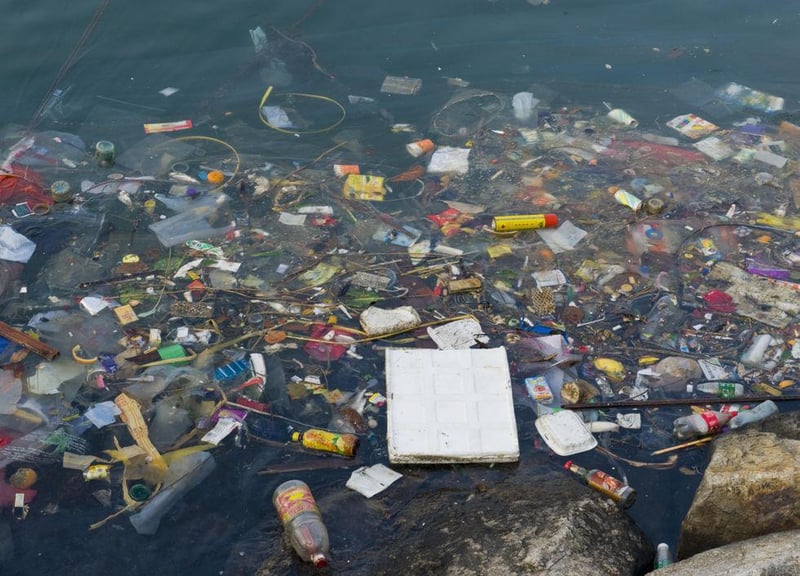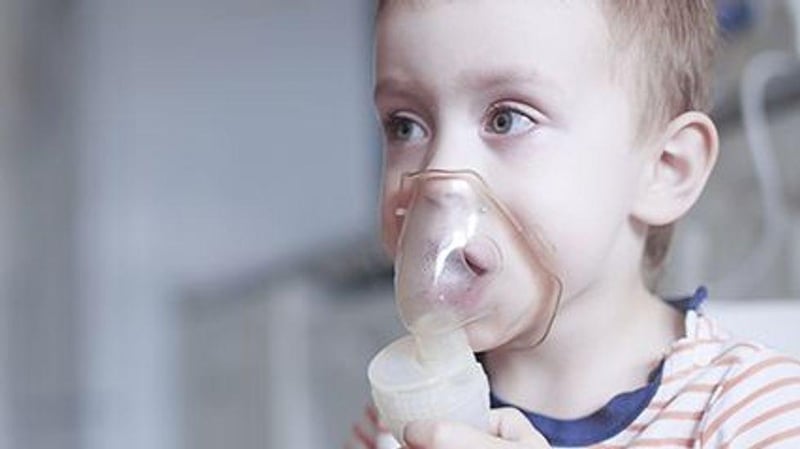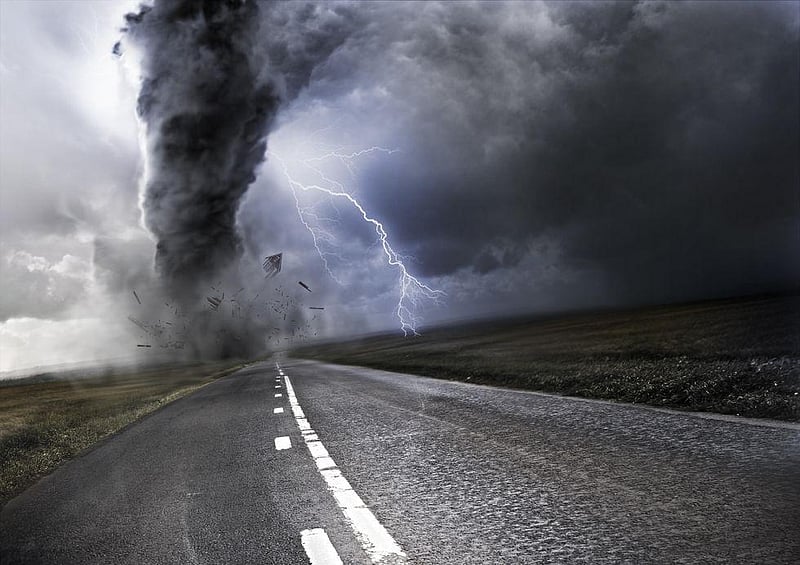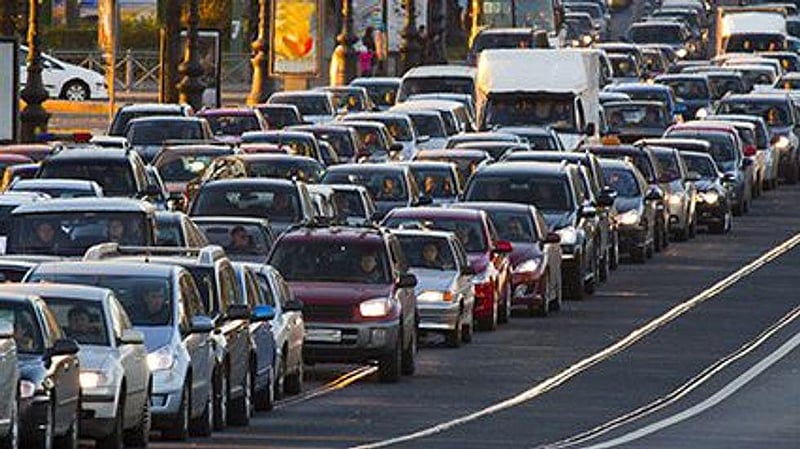Get Healthy!
291 Results for search "Environment".
Health News Results - 291
Singing in a choir may be good for your soul, but it can also spread COVID-19 far more easily than conversation does.
A new study also found that the louder and person sings or talks, the more particles are spewed into the air, and that more particles are released by men than women, and by adults than children.
Fears that airborne transmission of COVID-19 could pose a risk to p...
- HealthDay Reporter
- Robert Preidt
- |
- November 29, 2021
- |
- Full Page
It's probably fair to say that most people know of the so-called "Freshman 15" -- the weight that college students are often said to gain when they're away from home for the first time.
But in recent decades, matters have gotten much worse in the United States. A new study using national data for people aged 18 to 25 found that while the prevalence of obesity was just over 6% in 1976 to 1...
- HealthDay Reporter
- |
- November 19, 2021
- |
- Full Page
While climate change gets a lot of notice for its numerous negative impacts around the globe, children's allergies may not be among them.
Despite climate change, with the longer growing seasons and larger pollen loads that are attributed to it, more than 5,800 children in the Los Angeles area with asthma did not have an increase in allergic sensitization or allergy diagnosis over a 15-yea...
- HealthDay Reporter
- Cara Murez
- |
- November 19, 2021
- |
- Full Page
Race-based gaps in health care and health outcomes persist in every region of the United States, a new state-by-state report card shows.
Racial and ethnic disparities woven throughout America and its system of health care mean that people of color are more likely to die younger from preventable illnesses than white people, according to a racial equity scorecard developed by The Commonweal...
- HealthDay Reporter
- Dennis Thompson
- |
- November 18, 2021
- |
- Full Page
A new study confirms that when a country is more accepting of people who are LGBTQ, fewer gay or bisexual men take their own lives.
In a new study, researchers compared life in a country where LGBTQ folks encounter strong stigma with that in a country where stigma against them is low. The upshot: The risk of depression and suicide dropped significantly when gay men moved to a more toleran...
- HealthDay Reporter
- Cara Murez
- |
- November 16, 2021
- |
- Full Page
While the lockdowns of the pandemic may have done the planet's atmosphere a favor, a new study predicts that discarded masks, gloves and face shields will add more than 25,000 tons of plastic waste to the world's oceans.
Researchers from Nanjing University's School of Atmospheric Sciences in China and the University of California, San Diego (UCSD) Scripps Institution of Oceanography used ...
- HealthDay Reporter
- Cara Murez
- |
- November 9, 2021
- |
- Full Page
A new rule to sharply cut methane emissions and other oil and gas industry air pollutants that harm health and contribute to climate change is in the works.
The new Clean Air Act rule proposed Tuesday by the U.S. Environmental Protection Agency (EPA) would cut 41 million tons of methane emissions between 2023 and 2035.
That's the equivalent of 920 million metric tons of carbon dioxi...
- HealthDay Reporter
- Robert Preidt
- |
- November 2, 2021
- |
- Full Page
Global warming may pose a threat to your kidneys, new research suggests.
For the study, researchers analyzed data from hospitals in more than 1,800 cities in Brazil between 2000 and 2015, and found that just over 7% of all admissions for kidney disease could be attributed to hotter temperatures.
That equates to more than 202,000 cases of kidney disease, according to the report publi...
- HealthDay Reporter
- Robert Preidt
- |
- November 1, 2021
- |
- Full Page
Climate change is already making Americans sick and researchers warn that the nation must take swift action to protect people's well-being.
"Climate change effects aren't just an abstraction, something that will happen years from now. They are happening today, and they impact every aspect of your health, from the air you breathe [more smoke, more pollen] to the nutritional quality of the ...
- HealthDay Reporter
- Robert Preidt
- |
- October 29, 2021
- |
- Full Page
Living near a fast-food restaurant may provide a quick fix if you're famished and pressed for time, but it may boost your odds for type 2 diabetes, a large study of U.S veterans suggests.
Neighborhoods with more supermarkets, however, may protect you against developing diabetes, especially in suburban and rural areas, the researchers said.
"The food availability choices in your envi...
- HealthDay Reporter
- Denise Mann
- |
- October 29, 2021
- |
- Full Page
You're driving down the highway when a tornado warning is issued over your car radio. Is it safe to follow widespread advice and seek shelter under an overpass?
While the U.S. National Weather Service warns that the wind from a tornado can accelerate as it flows under the overpass, creating a wind tunnel effect, a new study found differently.
"In our research, there is no one findin...
- HealthDay Reporter
- Robert Preidt
- |
- October 27, 2021
- |
- Full Page
Just a few hours a week of moderate exercise may reduce your risk of cancer, a new study suggests.
If Americans got the recommended five hours a week of moderate-intensity physical activity, more than 46,000 cancer cases could be prevented in the United States each year, according to the report.
The study authors said that 3% of all cancer cases in U.S. adults aged 30 and older from...
- HealthDay Reporter
- Robert Preidt
- |
- October 22, 2021
- |
- Full Page
A new plan to limit pollution from so-called "forever chemicals" will include restricting their release into the environment and speeding cleanup of contaminated sites, the U.S. Environmental Protection Agency announced Monday.
The chemicals, called PFAS (per- and polyfluoroalkyl substances), are used in products ranging from cookware to carpets to firefighting foam. They're increasingly ...
- HealthDay Reporter
- Robert Preidt and Robin Foster
- |
- October 18, 2021
- |
- Full Page
Prolonged stays in space appear to damage astronauts' brains, a small, new study suggests.
The researchers studied five Russian cosmonauts, mean age 49, who stayed on the International Space Station (ISS) for an average of 5.5 months.
Blood samples were taken from the cosmonauts 20 days before their departure to the ISS, and one day, one week, and about three weeks after they return...
- HealthDay Reporter
- Robert Preidt
- |
- October 18, 2021
- |
- Full Page
Children who spent more time in nature during pandemic lockdowns suffered fewer behavioral and emotional problems, British researchers say.
The investigators also found that children in wealthier families tended to increase their connection to nature during the pandemic more than those from poorer families.
The new study included 376 families in the United Kingdom who had children a...
- HealthDay Reporter
- Robert Preidt
- |
- October 15, 2021
- |
- Full Page
You can add obesity and its related health risks to the long list of threats posed by climate change, researchers report.
In a new review, researchers from Fox Chase Cancer Center in Philadelphia outlined the association between climate change and obesity.
As global temperatures increase, people may become less physically active and less able to burn excess fat, putting them at incr...
- HealthDay Reporter
- Robert Preidt
- |
- October 14, 2021
- |
- Full Page
Urban dwellers around the globe are sweating through three times as many "extreme heat" days as their counterparts did in the 1980s, a new study suggests.
The study is the latest to chart humans' growing exposure to dangerously high temperatures. Experts said it looked at what's happening in finer detail than previous research has -- and it suggests that exposure to extreme heat is more w...
- HealthDay Reporter
- Amy Norton
- |
- October 13, 2021
- |
- Full Page
Climate change is the "single biggest health threat facing humanity," and governments must "act with urgency" to tackle the crisis, a World Health Organization (WHO) special report warns.
In advance of a United Nation's climate change summit in early November, groups representing 45 million nurses, doctors and health professionals worldwide signed an open letter urging action on the clima...
- HealthDay Reporter
- Robert Preidt and Robin Foster
- |
- October 12, 2021
- |
- Full Page
Scientists in Japan have discovered yet another tick-borne virus that can make people sick.
The Yezo virus is transmitted by tick bites, and triggers fever and a reduction in blood platelets and white blood cells.
"At least seven people have been infected with this new virus in Japan since 2014, but, so far, no deaths have been confirmed," said Keita Matsuno, a virologist at Hokkaid...
- HealthDay Reporter
- Robert Preidt
- |
- October 7, 2021
- |
- Full Page
You might think that wildfires in the western United States would only affect folks in places like Colorado, California or Oregon.
But a new study estimates that three-quarters of smoke-related deaths and visits to the emergency room for asthma in the United States happen east of the Rocky Mount...
- HealthDay Reporter
- Cara Murez
- |
- October 7, 2021
- |
- Full Page
The rings of stately pines on the coasts of North and South Carolina offer telling long-term evidence of climate change and a chilling forecast for the future.
The upshot: The last 300 years have gotten wetter and wetter, making hurricanes ever more dangerous.
"Our findings suggest that the maximum amount of rainfall from these storms is increasing and is likely going to continue to...
- HealthDay Reporter
- Denise Mann
- |
- October 6, 2021
- |
- Full Page
More than 50% of American children have detectable blood lead levels, a new study reveals. And young children who live in places with lots of pre-1950s housing and low incomes have the greatest risk.
"Public health authorities have worked commendably to reduce lead exposure for decades, and yet, substantial risk remains," said study co-author Dr. Harvey Kaufman, head of health trends rese...
- HealthDay Reporter
- Steven Reinberg
- |
- September 27, 2021
- |
- Full Page
Nuclear war would trigger worldwide climate change and take a dire toll on food production and human health, according to scientists who studied different scenarios using a modern climate model.
"Although we suspected that ozone would be destroyed after nuclear war and that would result in enhanced ultraviolet light at the Earth's surface, if there was too much smoke, it would block out t...
- HealthDay Reporter
- Cara Murez
- |
- September 27, 2021
- |
- Full Page
When COVID-19 restrictions forced you indoors, it brought birds back to North America, new research shows.
Across the United States and Canada, birders documented an 80% increase among most of the 82 species they recorded since the start of pandemic restrictions last year.
Some species (26%) increased in response to drops in certain types of human activity, while decreasing in resp...
- HealthDay Reporter
- |
- September 26, 2021
- |
- Full Page
In a move to combat global warming, the U.S. Environmental Protection Agency (EPA) announced Thursday that it will restrict U.S. production and use of hydrofluorocarbons by 85% over the next 15 years.
Hydrofluorocarbons (HFCs) are potent greenhouse gases often used in refrigerators and air conditioners, and they are vastly more powerful than carbon dioxide. These gases can leak into the a...
- HealthDay Reporter
- Steven Reinberg
- |
- September 23, 2021
- |
- Full Page
Living within a few blocks of a shooting increases the risk that a child will end up visiting the emergency department for mental health-related problems, researchers say.
The new study found significant increases in mental health-related ER visits in the two weeks after a neighborhood shooting, especially among kids who lived closest to it and those exposed to multiple shootings.
"...
- HealthDay Reporter
- Steven Reinberg
- |
- September 21, 2021
- |
- Full Page
Liver cancer is on the rise in rural America, but on a downswing in cities, new research shows.
Hepatocellular carcinoma (HCC) is the most common type of liver cancer and the fastest-growing cause of cancer deaths in the United States. It's rising at an annual rate of nearly 6% in rural areas, approaching rates seen in cities, the study authors found.
"Considering that one in five A...
- HealthDay Reporter
- Steven Reinberg
- |
- September 21, 2021
- |
- Full Page
It's not just athletes on the field who suffer when outdoor temperatures get too high. Members of college and high school marching bands are at increased risk of heat-related illness, too, researchers warn.
"They go out there, and they often wear these really heavy wool uniforms," said lead author Andrew Grundstein of the University of Georgia. "They practice many times for hours and hour...
- HealthDay Reporter
- Steven Reinberg
- |
- September 20, 2021
- |
- Full Page
Twenty years on, responders to the World Trade Center attacks in New York City are showing increased risks of certain cancers, two new studies confirm.
Researchers found higher-than-average rates of prostate cancer among firefighters, medics and other workers who toiled at the disaster site on and after Sept. 11, 2001.
And compared with firefighters from other major U.S. cities...
- HealthDay Reporter
- Amy Norton
- |
- September 13, 2021
- |
- Full Page
Workers, take heed: Your place of work can help bring on or exacerbate asthma, a new study suggests.
Common workplace triggers include poor ventilation and moldy air conditioning systems, cleaning products and even the toner used in printers, the researchers said. Employees with asthma caused by the office environment often quit, the researchers said, especially if employers don't do anyt...
- HealthDay Reporter
- Steven Reinberg
- |
- September 9, 2021
- |
- Full Page
Wildfires are killing people around the world -- even those with limited exposure to wildfire-related pollution, an international team of researchers reports.
The new research revealed that short-term exposure to wildfire-related fine particulate matter (PM2.5) in the air is i...
- HealthDay Reporter
- Steven Reinberg
- |
- September 9, 2021
- |
- Full Page
It's more than just an annoyance: Long-term exposure to traffic and train noise may increase the risk of dementia and Alzheimer's disease, Danish researchers report.
The study authors said that more than 1,200 of Denmark's nearly 8,500 cases of dementia in 2017 may have resulted from exposure to noise, which means that reducing traffic noise might help prevent the thinking, memory and beh...
- HealthDay Reporter
- Steven Reinberg
- |
- September 9, 2021
- |
- Full Page
An editorial written jointly by the editors of more than 230 medical journals worldwide has a grim warning for humanity: Climate change is making people sick -- and it's going to get worse.
As reported by CNN, the same global warming that's causing extreme weather events has had a number of negative impacts on human health during the past two decades, the journal editors said. A...
- HealthDay Reporter
- Cara Murez
- |
- September 7, 2021
- |
- Full Page
Hotter weather driven by climate change is bad news for people with chronic obstructive pulmonary disease (COPD), a new study warns.
Researchers say warming trends could worsen COPD symptoms, such as shortness of breath, wheezing or coughing. Millions of people have COPD, a combination of emphysema and chronic bronchitis that is often tied to smoking.
"The climate emergency is prov...
- HealthDay Reporter
- Robert Preidt
- |
- September 3, 2021
- |
- Full Page
Algeria recently became the last country in the world to halt sales of highly toxic leaded gasoline, the U.N. Environment Agency (UNEP) said Monday.
The agency said that marked the "official end" of the use of the fuel that's been linked to a wide range of human health problems, the Associated Press reported.
"The successful enforcement of the ban on leaded petrol is a huge...
- HealthDay Reporter
- Robert Preidt and Robin Foster
- |
- August 31, 2021
- |
- Full Page
The greener your neighborhood, the lower your risk of heart disease.
That's the takeaway from a new study, which reported that adding to a neighborhood's green space can have a big payoff for public health.
"For the cost of one emergency room visit for a heart attack, trees could be planted in a neighborhood with 100 residents and potentially prevent ten heart diseases," said study ...
- HealthDay Reporter
- Robert Preidt
- |
- August 30, 2021
- |
- Full Page
Leaky sewer pipes are to blame for large amounts of human medicines getting into rivers, lakes and other bodies of water, a new study reveals.
Researchers found that tens of thousands of doses of drugs get into Chesapeake Bay in Maryland every year due to seeping sewer pipes.
"Pharmaceuticals enter freshwaters through multiple pathways, including effluent from wastewater treatment a...
- HealthDay Reporter
- Robert Preidt
- |
- August 23, 2021
- |
- Full Page
The Biden Administration said Wednesday that a widely used pesticide will be banned because it's been linked to neurological damage in children.
The new rule to block the use of chlorpyrifos on food will take effect in six months, the Environmental Protection Agency said.
"Today [the] EPA is taking an overdue step to protect public health," EPA head Michael Regan said in an agency ...
- HealthDay Reporter
- Robert Preidt and Robin Foster
- |
- August 19, 2021
- |
- Full Page
While breathing in secondhand smoke is known to harm kids' lungs, new research suggests that children whose parents smoked are also more prone to developing rheumatoid arthritis later in life.
"Our findings give more depth and gravity to the negative health consequences of smoking in relation to [rheumatoid arthritis], one of the most common autoimmune diseases," said lead author Dr. Kazu...
- HealthDay Reporter
- Robert Preidt
- |
- August 19, 2021
- |
- Full Page
The wildfire smoke now smothering wide portions of the United States isn't just stinging eyes and tightening chests -- it also might be contributing to the current surge of severe COVID-19 cases.
Data from three Western states subject to frequent wildfires shows that COVID-19 cases and deaths increase with the amount of smoke pollution in the air, according to a new study.
As wildfi...
- HealthDay Reporter
- Dennis Thompson
- |
- August 16, 2021
- |
- Full Page
Smoke from wildfires burning along the West Coast is choking the entire United States, reminding everyone of the hazards of climate change.
But that haze isn't just stinging your eyes and choking your breath -- it poses a direct threat to your health, experts say.
Wildfire smoke has been shown to increase risk of heart attacks and strokes, as well as lung ailments like asthma, Ameri...
- HealthDay Reporter
- Dennis Thompson
- |
- August 9, 2021
- |
- Full Page











































